

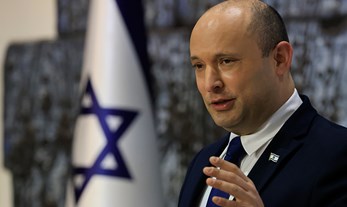
Days of Judgement Ahead for the New Government
Written By: Yohanan Plesner
Let us wish the people of Israel, the government of Israel, and its leaders a Shana Tova, a good new year, and one in which we are able to meet the coming challenges and tests with success.

Americans Split on Military Aid to Israel, Say Political Status Quo Unacceptable
Written By: Dina Smeltz, Senior Fellow for Public Opinion and Foreign Policy, Emily Sullivan, Research Assistant, Prof. Tamar Hermann
Both the US and Israel enter new eras of leadership - how does the public view the future of US-Israel relations against the background of the the conflict with the Palestinians
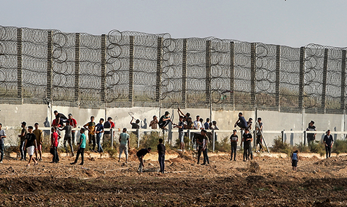
The Silence of the Commanders
Written By: Dr. Idit Shafran Gittleman
False quick-spreading claims blamed an IDF soldier's death on overly stringent rules of engagement. What took the military so long to set the record straight?

President Reuven Rivlin Joins IDI as Honorary Chair
Israel's tenth President to focus on bridging gaps and strengthening democratic values

Ahead of the Jewish New Year - National Mood Pessimistic
Written By: Prof. Tamar Hermann, Dr. Or Anabi
Ahead of the Jewish New Year, 60% of Israelis define the national mood as "pessimistic." 52% of Jewish Israelis may skip their holiday meals if they include unvaccinated guests.

The Sins of the Digital Era
Written By: Dr. Tehilla Shwartz Altshuler
Social media narrows our range of information by spreading misinformation.

Religiously Democratic?
Written By: Prof. Daniel Statman
Prof. Daniel Statman discusses his new co-authored book State and Religion is Israel, a joint legal and philosophical attempt to conceptualize the role of religion in democratic regimes.
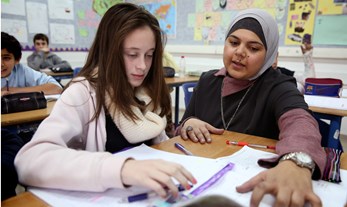
Taking Attendance: Arab Teachers and Students in Israel’s Education System
Written By: Dr. Nasreen Haddad Haj-Yahya
Israel is at a shortage of teachers that is forcing schools to take drastic measures, but the Jewish schools are still not hiring Arab teachers.

What's the Point of an Apology?
Written By: Prof. Daniel Statman
In this season of slichot (penitence) we should ask ourselves - does the essence of apology lie in the sense of regret, or in its expression?

The Return of the International Arena
Written By: Prof. Amichai Cohen
With international institutions once again a cornerstone of US foreign policy, Israel will have to adjust accordingly

Lowering the Age of Exemption will Lead Thousands of Haredim into the Labor Force
Written By: Yohanan Plesner , Dr. Gilad Malach
Congratulations to the Bennett government on approving the outline for lowering the age of the students exempted from service in the IDF to 21. This is a vital and necessary step that the Israel Democracy Institute has recommended in recent years. A kind of necessary evil that will lead in the short term to the entry of about 5,000 ultra-Orthodox into the labor market and thousands more in the coming years.

We Must not Squander the Opportunity for Real Change in Israeli Schools
Written By: Dr. Tammy Hoffman
How many generations of Israelis will be educated without the tools they need to commit to the values of inclusion, respect for the other, and equality?

Lowering the Exemption Age for Military Service
Written By: Dr. Gilad Malach
Survey finds lowering the exemption age is not likely to reduce the number of ultra-Orthodox conscripts to the IDF, however it will encourage thousands of ultra-Orthodox men to enter the workforce.
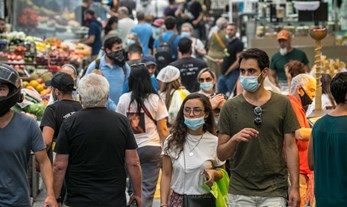
What Solutions to the Conflict with the Palestinians are Acceptable to Israelis?
Written By: Prof. Tamar Hermann, Dr. Or Anabi
41.5% of Jewish Israelis think that the solution to maintain the status-quo with the Palestinians is acceptable– 34% think the same of a two-state solution
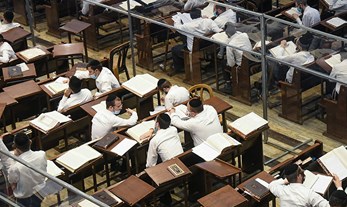
Should Israeli Colleges Insist on Coed Classrooms?
Written By: Dr. Gilad Malach
Dr. Gilad Malach is interviewed on Kan Radion on a recent Supreme Court ruling allowing institutions of higher learning to have separate classrooms for men and women and what the implications will be for the integration of the ultra-Orthodox into Israeli society.

NSO Spyware Scandal May Threaten Israel’s Love Affair With Amazon and Google
Written By: Dr. Tehilla Shwartz Altshuler
Amazon reportedly cut NSO off from its AWS service - the same one that is supposed to support Israel’s new official state cloud. Could Jerusalem be cut off, too?

The NSO Affair: An Explainer
Written By: Dr. Tehilla Shwartz Altshuler
The allegations against Israeli cyber-security company NSO have made international headlines. How could this affect the ‘Startup Nation?’

Q&A: The Failure to Extend the Citizenship Law
Written By: Adv. Lila Margalit
The Knesset recently failed to pass an extension of the Citizenship and Entry into Israel Law was adopted in 2003 as a temporary order. Israel's government must now reconsider whether there is indeed a security justification for the sweeping provisions that have been in place until now, and whether there are alternatives that can minimize the potential violation of human rights resulting from the original law.
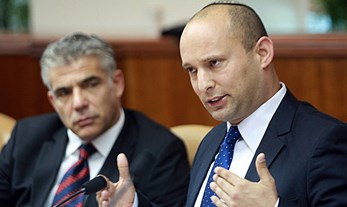
Can Israel’s New Center Hold?
Written By: Yohanan Plesner
Writing in Foreign Affairs, IDI President Yohanan Plesner notes that Netanyahu is out, but the crisis he thrived on remains.

The President—A Rubber Stamp or a Shield of Democracy?
Written By: Dr. Dana Blander
To ensure that the President is able to perform his or her symbolic role in the best possible way, it is important to distance the office as much as possible from political and social disagreements and debates.
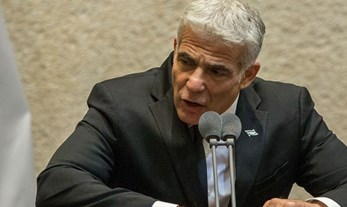
Yair Lapid is Perceived as the “Most Influential” Figure in the New Government
Written By: Prof. Tamar Hermann, Dr. Or Anabi
26% of Israelis think that Foreign Minister and Alternate Prime Minister Yair Lapid is the “most influential” figure in the government; in second place with 19% was Prime Minister Naftali Bennett and in third with 11% was Mansour Abbas.
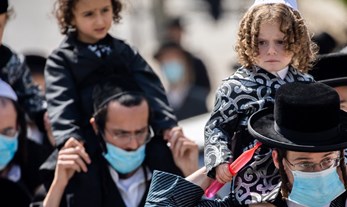
Decision on Daycare Subsidies = Increased Motivation to Work
Written By: Dr. Gilad Malach
Dr. Gilad Malach on the Finance Minister's Decision Regarding Daycare Subsidies: "This is a welcome decision that will end the preferential treatment that ultra-Orthodox households have enjoyed"

How Revolutionary Was Israel’s ‘Constitutional Revolution’?
Written By: Prof. Amichai Cohen
Prof. Amichai Cohen discusses his new book The Constitutional Revolution and Counter-Revolution, and explains the changing role of the High Court of Justice in maintaining the checks and balances of Israeli democracy.

A Decade Since the Social Protests, Summer 2011 – Highlights
Written By: Prof. Tamar Hermann, Dr. Or Anabi
A decade since the 2011 social protest, most Israelis think the social protest has failed to achieve its goals, with rising housing prices and growing gaps between rich and poor. On the other hand, most of them believe that the Balfour protest from the past year has actually succeeded. And despite everything, a large majority of the Israeli public still believes that public protests are an effective tool for influencing government policy
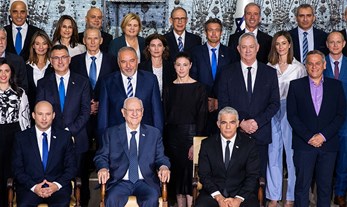
Governance vs. Governability: More Than Just Semantics
Written By: Adv. Edna Harel Fisher
Edna Harel-Fischer sits down with the Tel Aviv Review and unpacks the recent controversy around governance/governability in Israel: How did it become a partisan issue? And what is the role of the public service in safeguarding the will of the people?

An International Look at Israeli Democracy Under Benjamin Netanyahu
Written By: Dr. Or Anabi, Prof. Tamar Hermann
The new government offers a timely opportunity to review and assess Benjamin Netanyahu’s premiership in terms of its impact on Israeli democracy.
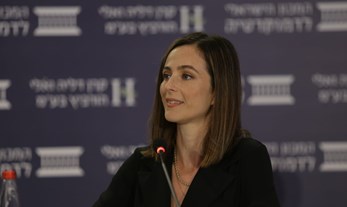
The Labor Market in the Post-COVID Era
Meirav Cohen, Minister of Social Equality: “Employers should be given incentives to choose older workers”
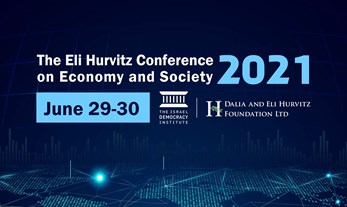
Israel's Macroeconomic Challenges in the Post-COVID World
“Two challenges hover above the rest – a stock market bubble and inflation”
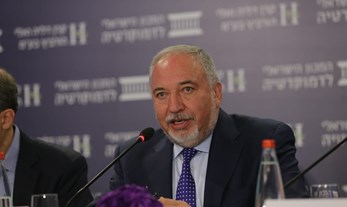
The Macroeconomic Priorities of the New Government
Avigdor Liberman, Minister of Finance, opened the first day of the 2021 Eli Hurvitz Conference on Economy and Society, saying: “We are after more than three years of political crisis without a budget, reforms or legislation. The economy ran on a kind of autopilot. We will now pursue a responsible policy, without deep cuts.


